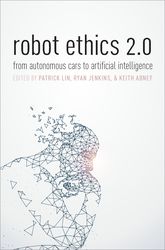
James DiGiovanna
DOI:10.1093/oso/9780190652951.003.0020
Enhancement and AI create moral dilemmas not envisaged in standard ethical theories. Some of this stems from the increased malleability of personal identity that this technology affords: an artificial being can instantly alter its memory, preferences, and moral character. If a self can, at will, jettison essential identity-giving characteristics, how are we to rely upon, befriend, or judge it? Moral problems will stem from the fact that such beings are para-persons: they meet all the standard requirements of personhood (self-awareness, agency, intentional states, second-order desires, etc.) but have an additional ability—the capacity for instant change—that disqualifies them from ordinary personal identity. In order to rescue some responsibility assignments for para-persons, a fine-grained analysis of responsibility-bearing parts of selves and the persistence conditions of these parts is proposed and recommended also for standard persons who undergo extreme change.
